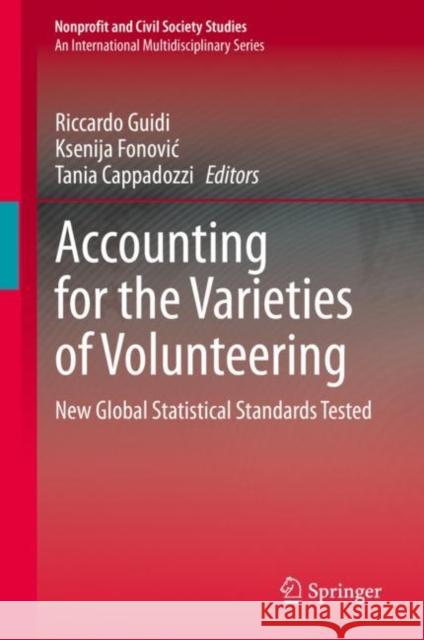Accounting for the Varieties of Volunteering: New Global Statistical Standards Tested » książka
topmenu
Accounting for the Varieties of Volunteering: New Global Statistical Standards Tested
ISBN-13: 9783030705459 / Angielski / Twarda / 2021 / 361 str.
Kategorie:
Kategorie BISAC:
Wydawca:
Springer
Seria wydawnicza:
Język:
Angielski
ISBN-13:
9783030705459
Rok wydania:
2021
Wydanie:
2021
Numer serii:
000108592
Ilość stron:
361
Waga:
0.69 kg
Wymiary:
23.39 x 15.6 x 2.24
Oprawa:
Twarda
Wolumenów:
01
Dodatkowe informacje:
Wydanie ilustrowane











